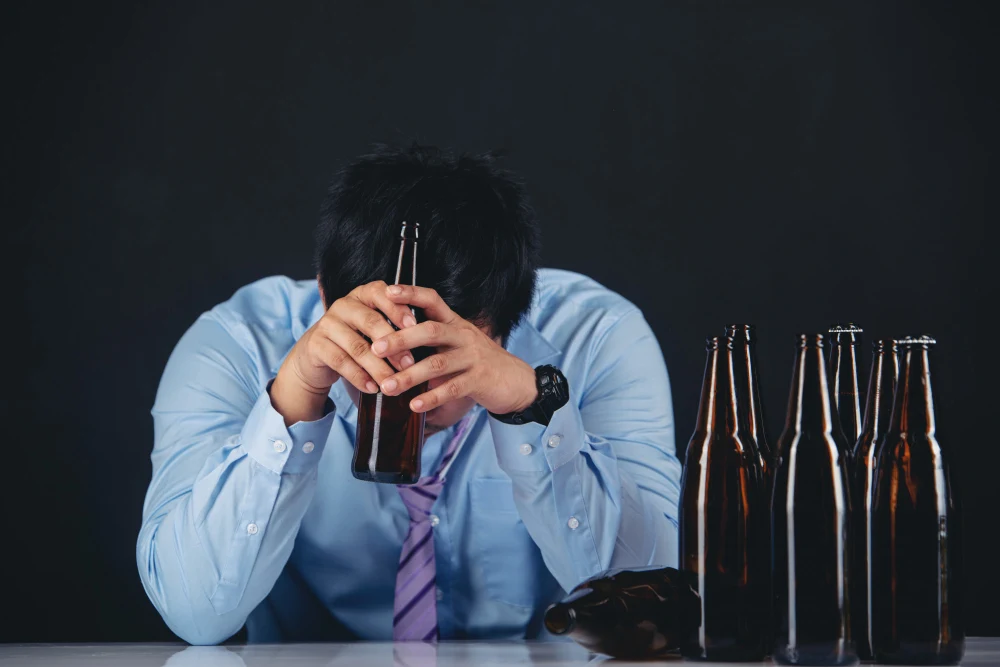Beyond Sugar: How Stress, Alcohol, And Lifestyle Choices Impact Diabetes
Category: Endocrinology
When people think of diabetes, sugar is often the first culprit that comes to mind. While excess sugar consumption is a well-known risk factor, diabetes is a complex metabolic disorder influenced by a variety of lifestyle factors. Stress, alcohol consumption, sleep quality, and physical activity all play a critical role in blood sugar regulation and overall health.
Managing diabetes—or reducing the risk of developing it—requires a holistic approach beyond dietary changes. In this blog, we explore the lesser-known lifestyle influences on diabetes and how they can be managed for better long-term health.
1. The Role of Stress in Diabetes
Modern life comes with its fair share of stress, but chronic stress can do more than affect your mood—it can significantly impact blood sugar levels. When stressed, the body releases cortisol and adrenaline, which prepare you for a "fight or flight" response. These hormones cause glucose levels to rise, providing quick energy for a perceived threat.
For people with diabetes, or those at risk, frequent spikes in blood sugar due to stress can worsen insulin resistance and lead to long-term complications. Additionally, stress often triggers unhealthy coping mechanisms, such as emotional eating, poor sleep, and reduced physical activity—all of which contribute to diabetes risk.
How to Manage Stress for Better Blood Sugar Control:
- Practice mindfulness: Meditation, deep breathing, and yoga can reduce stress hormones.
- Exercise regularly: Physical activity releases endorphins, which naturally combat stress.
- Get enough sleep: Poor sleep increases stress and disrupts glucose metabolism.
- Seek support: Talking to a counselor or joining a support group can help manage emotional stress.
2. Alcohol and Diabetes: More Than Just Empty Calories
Alcohol affects blood sugar levels in complex ways, depending on the type and quantity consumed. Beer and sweet cocktails contain sugars that can spike blood glucose, while excessive alcohol can cause blood sugar to drop dangerously low—especially for those on diabetes medications.
Additionally, alcohol interferes with liver function. The liver prioritizes breaking down alcohol over regulating blood sugar, increasing the risk of hypoglycemia (low blood sugar), particularly in individuals taking insulin or certain medications.
Smart Drinking Habits for Diabetes Management:
Drink in moderation: Limit alcohol intake to recommended levels—one drink per day for women and two for men.
Avoid sugary mixers: Opt for low-carb options like dry wine or spirits with soda water.
Never drink on an empty stomach: Eating before drinking can help maintain stable blood sugar levels.
Monitor blood sugar levels: If you have diabetes, check your glucose before and after drinking.
3. The Impact of a Sedentary Lifestyle
Lack of physical activity is a major contributor to insulin resistance. Sitting for extended periods slows metabolism, leading to weight gain and decreased insulin sensitivity. Studies show that even short, frequent movement breaks can improve glucose control.
Simple Ways to Stay Active:
- Take short walks: A 10-minute walk after meals helps regulate blood sugar.
- Use standing desks: Reduce prolonged sitting at work.
- Incorporate strength training: Building muscle improves insulin sensitivity.
- Try stretching or yoga: Low-impact activities can be beneficial for those with mobility issues.
4. Sleep and Its Connection to Diabetes
Quality sleep is crucial for metabolic health. Poor sleep disrupts the body's insulin response and increases hunger hormones, leading to cravings for high-carb foods. Sleep deprivation also raises cortisol levels, further impairing blood sugar control.
Tips for Better Sleep:
- Maintain a consistent sleep schedule: Go to bed and wake up at the same time daily.
- Limit screen time before bed: Blue light from devices disrupts melatonin production.
- Avoid caffeine and alcohol before sleep: These can interfere with restful sleep.
- Create a relaxing bedtime routine: Reading or meditation can help unwind.
5. Smoking and Diabetes: A Dangerous Combination
Smoking increases the risk of type 2 diabetes by up to 40%. Nicotine affects insulin resistance, and smokers tend to have higher blood sugar levels than non-smokers. Smoking also worsens diabetes complications, such as nerve damage and cardiovascular disease.
How to Quit Smoking for Better Diabetes Management:
- Seek professional help: Counseling or nicotine replacement therapy can assist in quitting.
- Find healthier stress-relief alternatives: Exercise, meditation, or hobbies can replace smoking.
- Gradually reduce smoking: Cutting down before quitting completely can help ease withdrawal symptoms.
6. The Power of a Holistic Lifestyle Approach
While sugar intake is an important factor in diabetes management, a comprehensive lifestyle approach offers better long-term benefits. Addressing stress, alcohol consumption, activity levels, sleep, and smoking can improve insulin sensitivity and overall well-being. By making small, consistent changes, individuals can take control of their health and reduce their risk of diabetes-related complications.
FAQs
1. Can stress alone cause diabetes?
Stress does not directly cause diabetes, but it can contribute to insulin resistance and poor lifestyle choices, increasing the risk of type 2 diabetes.
2. How does alcohol affect diabetes medications?
Alcohol can interfere with diabetes medications, leading to dangerously low or high blood sugar levels. It is important to drink in moderation and monitor glucose levels.
3. What are some quick stress-relief techniques for diabetes management?
Deep breathing, meditation, yoga, and short walks can help lower stress levels and support blood sugar control.
4. How much exercise is needed to reduce diabetes risk?
A minimum of 150 minutes of moderate exercise per week, such as brisk walking or cycling, can help improve insulin sensitivity.
5. Does poor sleep really impact blood sugar levels?
Yes, sleep deprivation affects insulin function, increases cravings for unhealthy foods, and raises cortisol levels, all of which contribute to poor blood sugar control.
6. Is smoking worse for diabetics than non-diabetics?
Yes, smoking significantly increases the risk of diabetes complications, including nerve damage, heart disease, and poor circulation.
7. What are the best drinks for diabetics who consume alcohol?
Dry wines, light beers, and spirits mixed with soda water are better options, as they contain fewer carbs and sugars than sweet cocktails or regular beers.



.webp)



